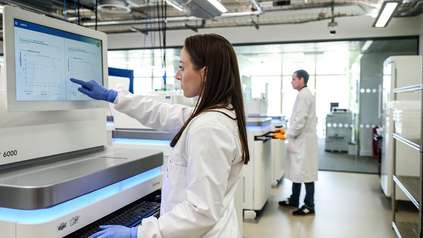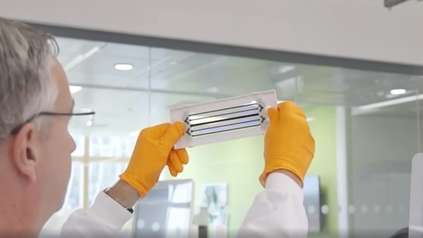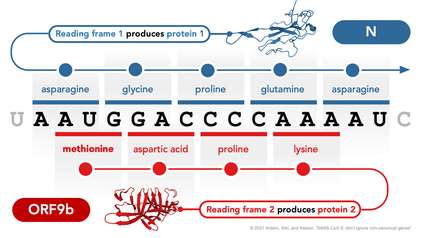New genetic links between menopause and cancer risk
Genetic variants that could lead to menopause starting between two and five-and-a-half years earlier than average, or one year later, may also be linked to increased cancer risk.
The large-scale study from the Wellcome Sanger Institute, the University of Exeter, the University of Cambridge and collaborators, uncovered that when people only having one working copy of one of the newly identified genes ETAA1, ZNF518A, PNPLA8, or PALB2, they go through menopause earlier. While the genetic changes studied are all rare in the population, their influence on menopause is five times greater than the impact of any previously identified common genetic variant. The strongest effect on menopause was from genetic variants in ZNF518A, only found in one in 4,000 women.
The research, published today (11 September) in Nature, looked at genetic sequencing data from 106,973 post-menopausal participants from the UK Biobank study. The team also discovered that changes in the gene, SAMHD1, can cause people to go through menopause over a year later than average and found, for the first time, that changes in this gene cause a predisposition to various cancers.
The team found that many of the genes linked to menopause timing are also risk factors for cancer, however the researchers stress that these variants are rare and further experimental studies are needed to understand their full impact. Discovering the effect of the genes gives scientists a better understanding of the biological mechanisms underpinning menopause and its links to other conditions.
When unrepaired DNA damage occurs in human eggs, they can die. The rate at which eggs are lost determines the timing of menopause. The team’s previous work has shown that many genes that influence the timing of menopause are likely to do this by affecting the genetic integrity of eggs.
The same factors affect other cells and tissue types in parallel, and in this new study, the team found that many of the genes linked to menopause timing are also linked to increased cancer risk. These include changes in the BRCA1 and BRCA2 genes, which result in earlier menopause and an increased risk of cancer. This is thought to be the process at play in the gene, SAMHD1. Genetic changes in this gene can cause people to go through menopause over a year later than average, and cause a predisposition to various cancers including breast and prostate cancer.
The team from the Wellcome Sanger Institute, the University of Exeter, the University of Cambridge and collaborators also analysed data from the 100,000 Genomes project and found that people with a high number of genetic variants that cause earlier menopause tended to pass on more new DNA changes to their children. The study authors believe this is because the relevant genes are involved in repairing damage to DNA, so this function may be compromised in the ovaries, enabling new genetic changes to occur in the eggs.
“For decades, menopause has been under-researched, yet now this is a rapidly evolving area of science. The timing of menopause has a huge impact on women as they plan their careers and lives, and understanding the genetic changes is of particular interest in terms of potential treatments that could prolong reproductive life in future.”
Professor Anna Murray, co-senior author from the University of Exeter Medical School
“Past research suggests the female ovary ages at a faster rate than other organ in the body, and this is a model system for understanding the biology of broader ageing. Our latest research builds on this concept, demonstrating that studying ovarian ageing will not only lead to a better understanding of the biology behind infertility and other reproductive disorders, but will enhance our understanding of fundamental processes that regulate DNA damage and cancer risk in the general population.”
Professor John Perry, co-senior author from the MRC Epidemiology Unit at the University of Cambridge
“New changes to the DNA in the egg or sperm are the source of all genetic variation in humans, contributing to differences between individuals in their appearance, behaviours and risk of disease. Until now, we knew very little about what influences these new DNA changes, apart from parental age. This is the first time we’ve seen that existing common variation in DNA influences the rate of these changes.”
Dr Hilary Martin, co-senior author from the Wellcome Sanger Institute
More information
Publication:
S. Stankovic, S. Shekari, Q. Huang, et al. (2024) Genetic links between ovarian ageing, cancer risk and de novo mutation rates. Nature. DOI: 10.1038/s41586-024-07931-x
Funding:
This research was funded by the Medical Research Council and Wellcome. A full acknowledgement list can be found in the publication.





